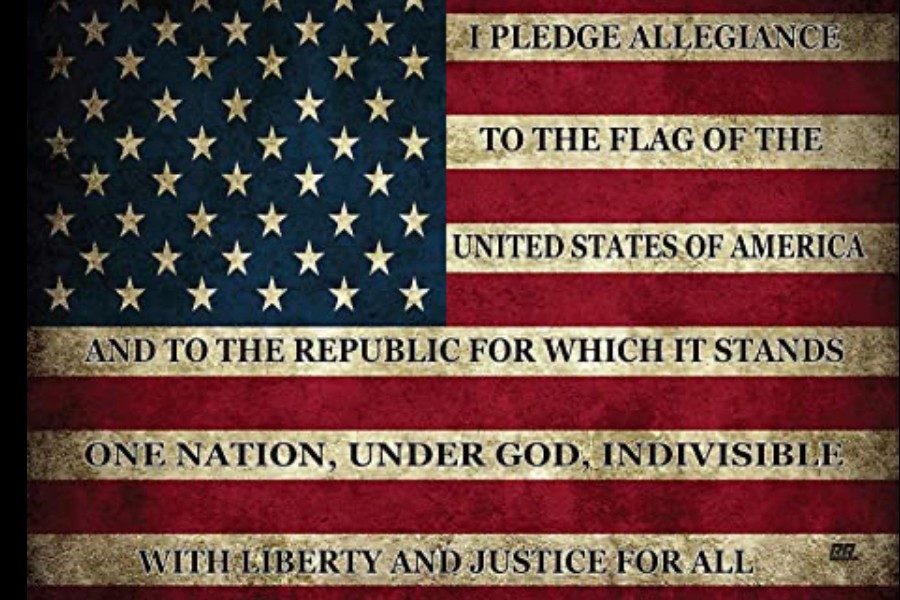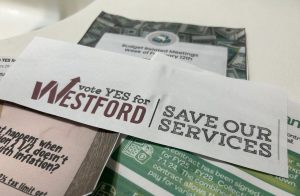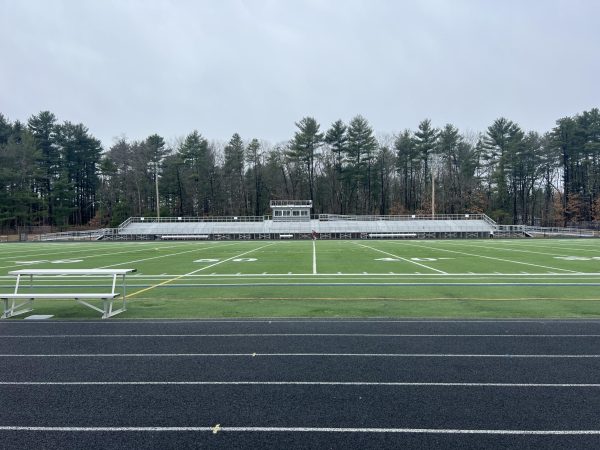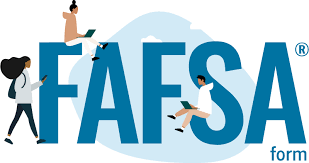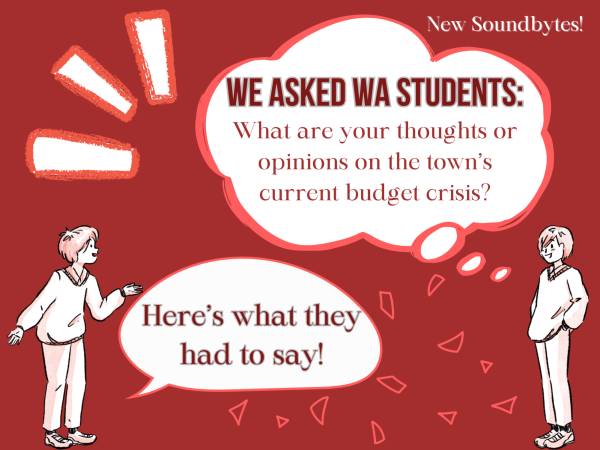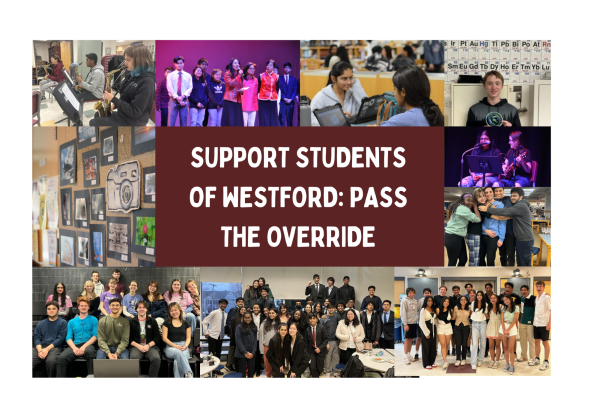The Pledge of Allegiance unnecessarily brings religion into schools
November 5, 2021
As the announcements come on, everyone stands up when the newscaster announces the Pledge of Allegiance. Students feel compelled to stand and put their right hand over their hearts. They speak the words they have had memorized since kindergarten. But this daily ritual shouldn’t be expected of the students who don’t believe in these actions.
Students shouldn’t say the Pledge of Allegiance in schools because it conflicts with religious and political views. These views could include a dislike for the use of the words “under God” in schools, an opposition to the stances of American politics, or a conflict between the use of the pledge and a student’s religious beliefs.
The pledge we say everyday is not the original pledge written by Frances Bellamy in 1892. The pledge has evolved over the years. The most controversial change is the addition of the words “under God” in 1954. President Eisenhower asked Congress to add these words in response to a sermon he heard given by Reverend George Docherty. While Docherty had liberal views on political issues, he also believed that being atheist or not believing in God made you un-American. Now students and people all across America, including those who don’t believe in a Christian God, are asked to say this or could be considered un-American.
Students in Westford schools at any age shouldn’t have to say the pledge if they don’t agree with it because it is an outdated policy. The words “under God” were added around seventy years ago during a very different time in American history, a time when religion had a stronger connection to the government and politics.
While religion still plays a large part in many people’s everyday lives, it shouldn’t be involved in the American public school system or government. Public schools have been separated from religion since the separation of church and state, but fragments of religion still are used in public schools. The pledge is just one example of this. But I find that it is a piece of religion that students have to confront every day.
Other religions are also excluded from the Pledge of Allegiance. There is a diverse group of religions in Westford schools that don’t involve the God that is referred to in the pledge. There are hundreds of gods from many different religions practiced around the world that are being excluded from the oath of a country that is made up of immigrants from different religious backgrounds. Saying the pledge and swearing “under God” could be against a student’s religion.
Different political views should also be considered when students are asked to say the pledge. Students who disagree with certain American laws and politics don’t feel comfortable standing for the flag and/or saying the pledge. The idea that we speak our loyalty to the flag of a country is outdated and we are free to make our own choices and our own political decisions.
Lastly, children are expected to say this pledge at a young age, even before they know what it means. Teenagers learn enough about American history and can make that choice for themselves. But kids in elementary school have no idea about politics and the history of this country because they are taught a redeveloped version of history, so they essentially say the Pledge of Allegiance without understanding everything that it stands for.
Schools are expected to teach the Pledge to students of all ages, even though they can be too young to understand it. This tradition could conflict with a student’s political views or religious views in a number of different ways. The Pledge of Allegiance in general is outdated and brings religion into a place that should be separated from it. Though there are many different reasons, the end result is that students shouldn’t have to speak the Pledge of Allegiance in schools.

